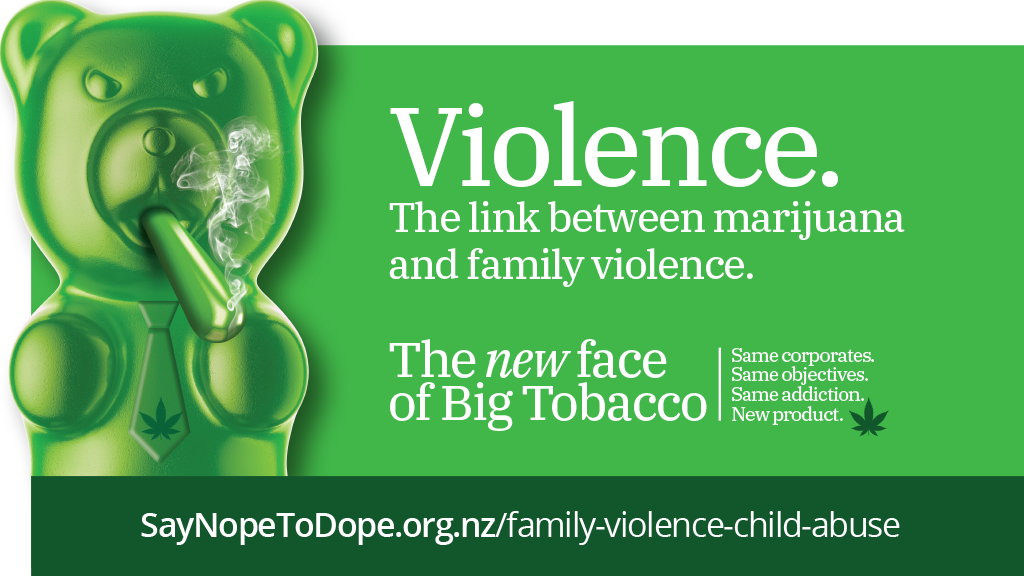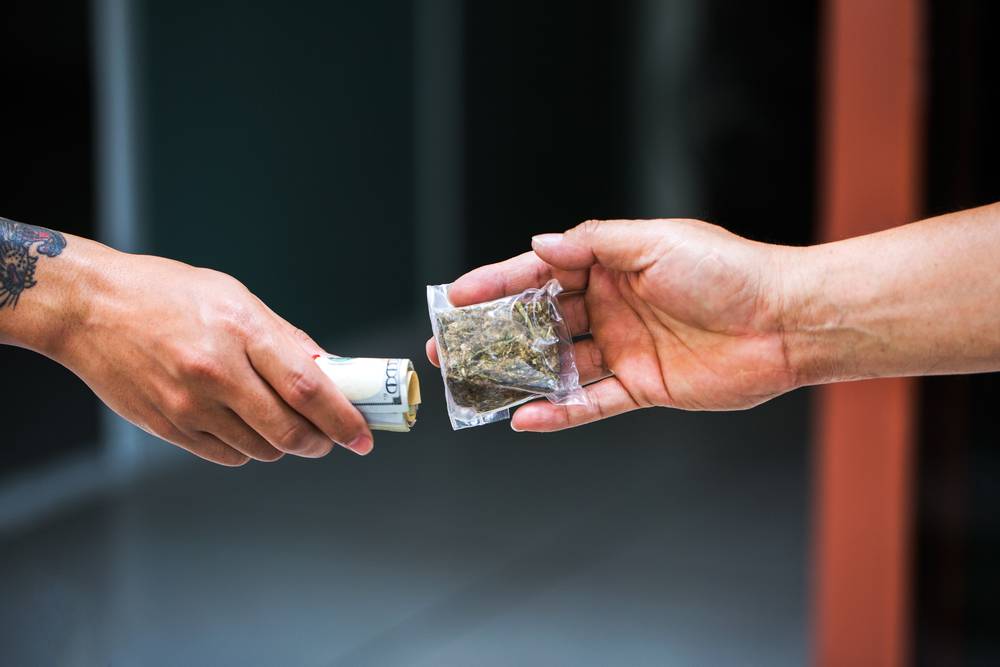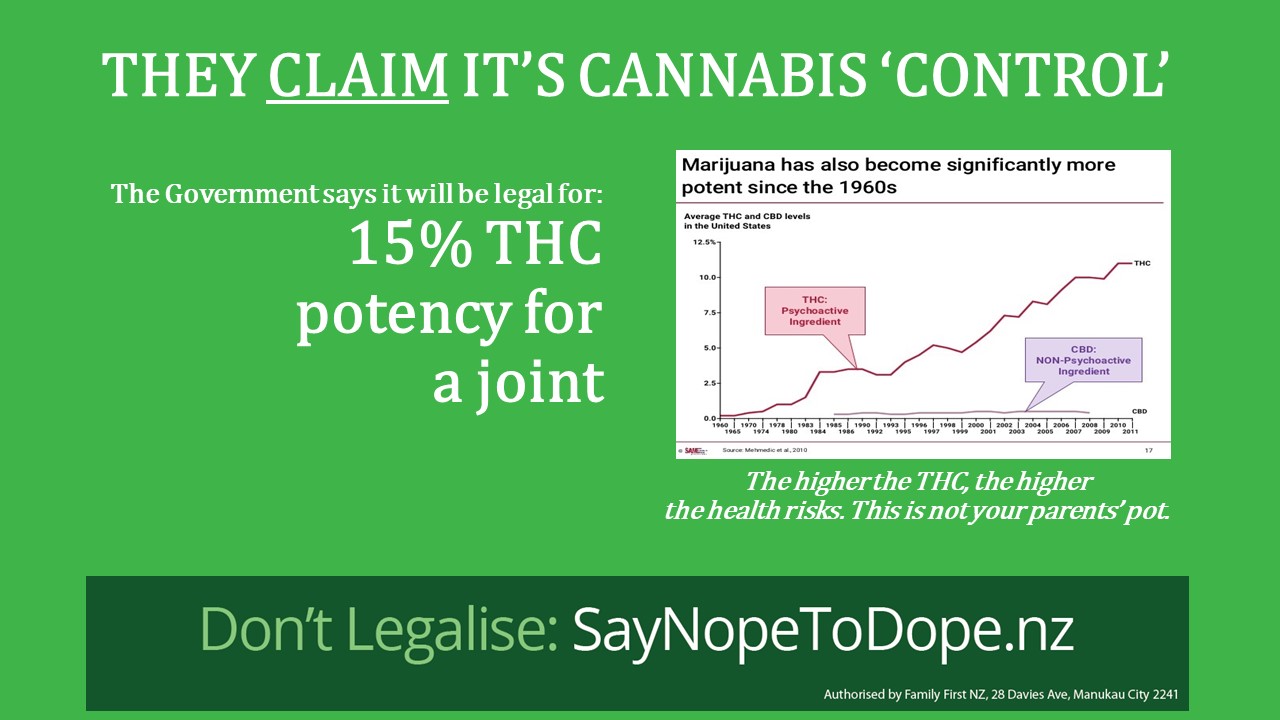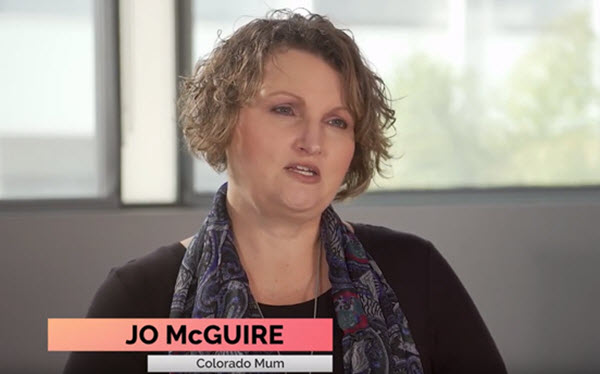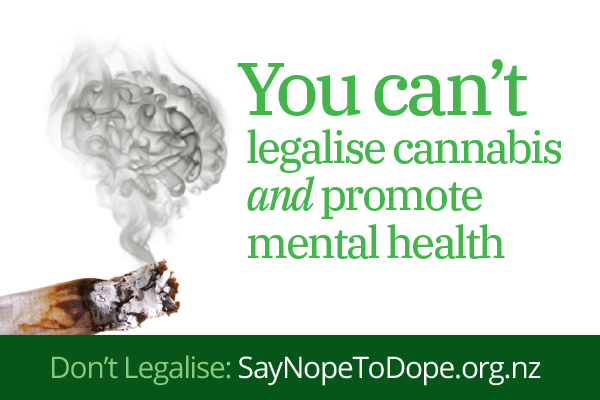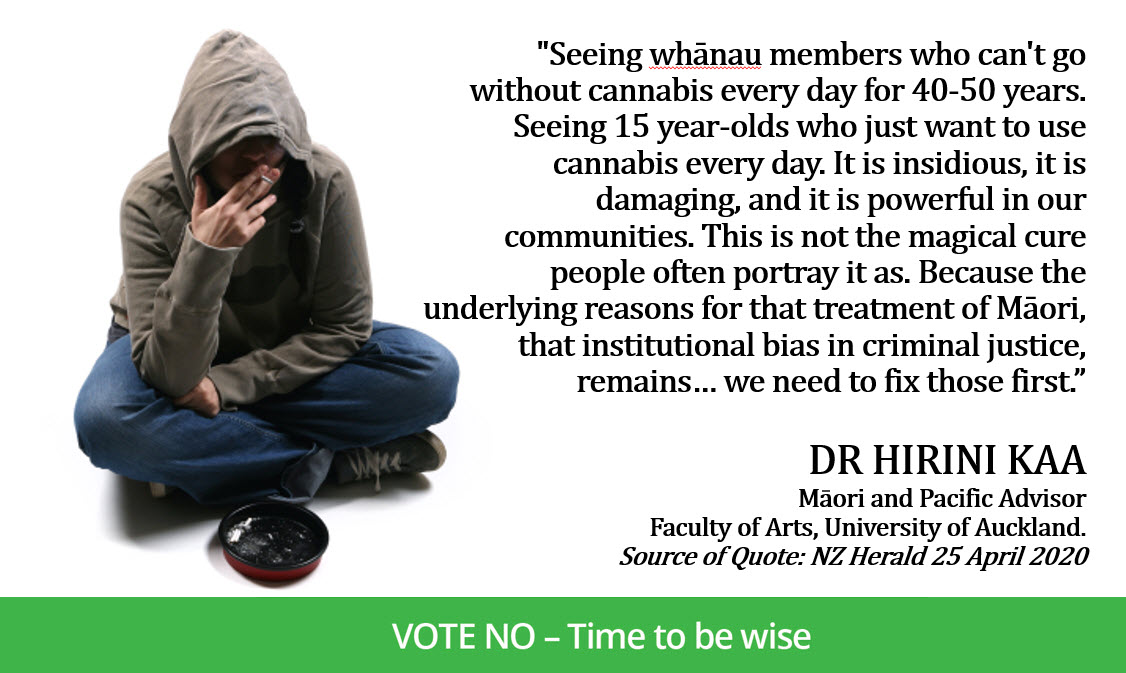
Cannabis referendum: All you need to know about what your vote means
NZ Herald 25 April 2020
Family First Comment: “Seeing whānau members who can’t go without cannabis every day for 40-50 years. Seeing 15 year-olds who just want to use cannabis every day. It is insidious, it is damaging, and it is powerful in our communities. This is not the magical cure people often portray it as. Because the underlying reasons for that treatment of Māori, that institutional bias in criminal justice, remains. With the justice system, with the health system – we need to fix those first. Otherwise we just get all the downsides and none of the positive fixes.”
What are the arguments against it?
The main concern from opponents is that legalisation will make cannabis even more accepted and available in this country, and that could lead to an increase in consumption and cannabis-related harm.
The Royal Society of New Zealand reviewed the science on cannabis’ risks and benefits last year, and found there were some negative outcomes from cannabis use (but also big gaps in data and research).
In particular, recreational cannabis was associated with mental illness, especially among youth, drug use disorders, respiratory illness, impaired cognition and increased road accidents.
“People may assume cannabis is largely safe as it has been used by people for so long, but this is not necessarily the case,” said Professor Michelle Glass, Head of the Department of Pharmacology and Toxicology at University of Otago.
Opponents of legal cannabis say the North American experience showed it was not the utopia many believed it would be.
In the first US state to legalise, Colorado, more people were being admitted to hospital for cannabis-related problems, and there were more reports of mental health cases linked to marijuana. At the same time, youth consumption had fallen. It also fell in Canada after legalisation 18 months ago, while use had risen among adults in their 60s.
In California and Canada, legalisation had failed to stamp out the black market, partly because of high taxes and bureaucracy which had stifled legal businesses.
Some opponents are sceptical about the touted benefits of legalisation for Māori. Changing the legal status of one drug will do little to shift the entrenched biases in the justice and health systems, they say. In the US, racial divides, including disproportionate arrests of African-Americans for drug possession, have persisted after legalisation.
And despite a promise to keep the cannabis industry small and local, New Zealand had a poor record in caving to big alcohol, tobacco and gambling interests. “I have little confidence in our government being able to handle it,” said Peter Adams, a public health researcher at the University of Auckland.
How does it compare to other countries?
New Zealand would be the fifth country to legalise cannabis, after Uruguay, Georgia, Canada and South Africa. Several US states have also legalised and the state of Australian Capital Territory (ACT) legalised recreational cannabis in January.
‘THIS IS NOT THE MAGICAL CURE’
In his work as a minister, Reverend Hirini Kaa has witnessed the more sinister side of cannabis use.
“Seeing whānau members who can’t go without cannabis every day for 40-50 years,” he said.
“Seeing 15 year-olds who just want to use cannabis every day. It is insidious, it is damaging, and it is powerful in our communities”, he said.
Dr Kaa, who is also a historian and kaiārahi (Māori and Pacific advisor at the University of Auckland, said he supported the increasingly health-based approach to illicit drug use in New Zealand and the shift away from punitive drug laws which disproportionately hurt Māori.
But he will vote “no” to legalising recreational cannabis use in this country, he said.
“This is not the magical cure people often portray it as. Because the underlying reasons for that treatment of Māori, that institutional bias in criminal justice, remains.
“With the justice system, with the health system – we need to fix those first. Otherwise we just get all the downsides and none of the positive fixes.”
He cited the example of the United States, where legalisation in some states had not changed the fortunes of African-Americans or indigenous people. They were still far more likely to be arrested and convicted of drug possession offences, and had not been at the heart of the “Green Rush”.
Dr Kaa said he believed he was in the minority In his iwi, most of whom backed reform. Cannabis had “found its way into our culture” through Bob Marley and reggae, he said. It played a role in its illegal economy. And if it were legalised, Māori stood to benefit from the economic opportunities it created in hard-up regions like the East Cape and the Far North.
But when it came to big social policy changes, New Zealand did not look back, he said.
“We don’t question the impact. Look at the alcohol laws. Anyone look back and see the impact on Māori? No. We do this, clap ourselves on the back for being progressive, and then Māori will have to clean up the mess in our communities.
“I hope people who are going to treat this as some kind of great, progressive leap forward understand the impact that it’s actually going to have in certain communities that New Zealand doesn’t even want to hear from, and doesn’t look back on.”
READ MORE: https://www.nzherald.co.nz/nz/news/article.cfm?c_id=1&objectid=12327184 (behind paywall)
 Keep up with family issues in NZ.
Keep up with family issues in NZ.
Receive our weekly emails direct to your Inbox.
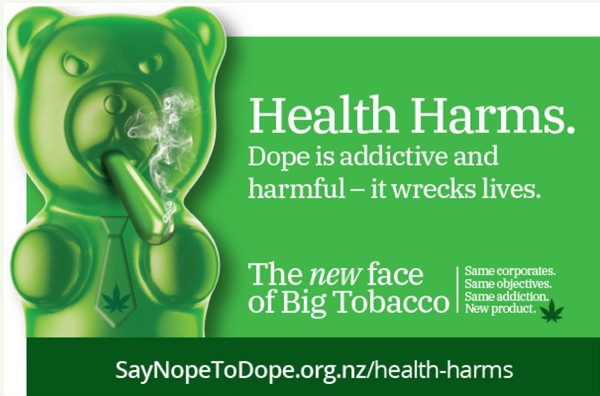


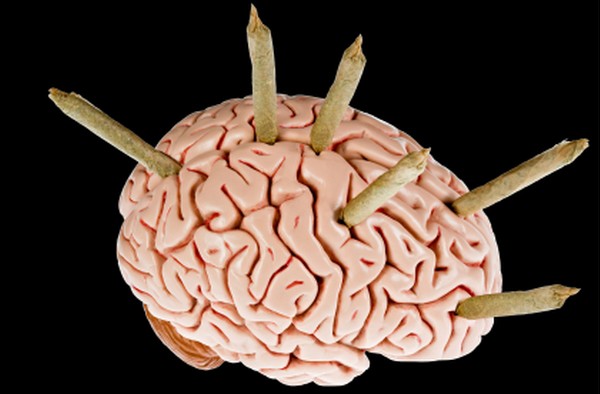
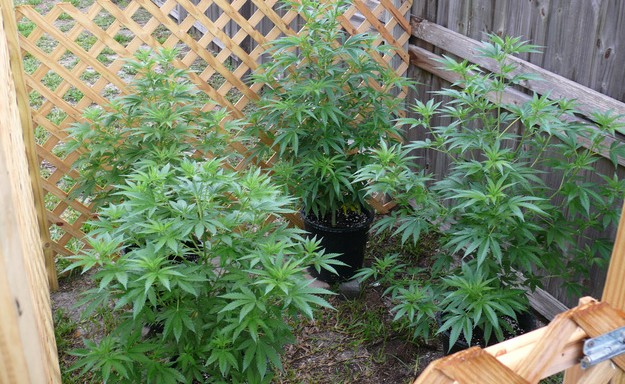
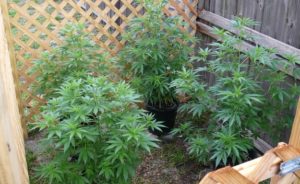 ANY PERSON WILL BE ALLOWED TO GROW TWO PLANTS FOR PERSONAL USE, TO A LIMIT OF FOUR PER HOUSEHOLD
ANY PERSON WILL BE ALLOWED TO GROW TWO PLANTS FOR PERSONAL USE, TO A LIMIT OF FOUR PER HOUSEHOLD